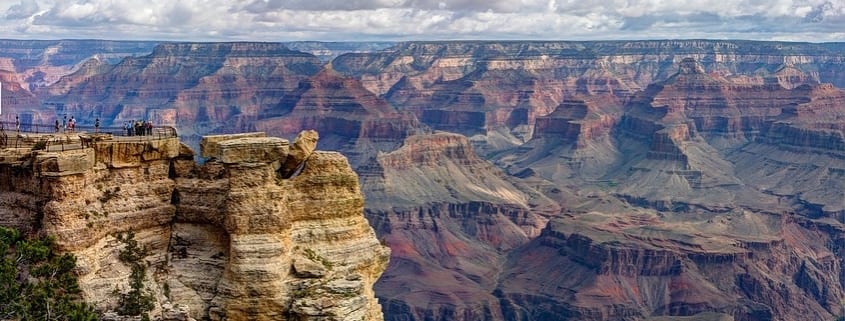Northern Arizona Could Collect $51 Million Annually if Bill Passes
According to a November report by the firm BBC Research and Consulting, the economy of North Arizona could receive a $51-million annual boost if a bill proposed by Arizona Congressman Raul Grijalva passes. The Greater Grand Canyon Heritage National Monument bill would designate 1.7 million acres as new public monument area. The estimated economic benefit from this acreage was based on the value of current private economic activities on this land.
The BBC analysis, which was commissioned by the Center for Western Priorities, noted that approximately 337,000 people would be expected to visit the designated area for recreation every year, spending millions of dollars on lodging, restaurants, and outdoor activities. Annual spending by out-of-town visitors alone was estimated to reach $15.6 million. The report’s authors noted that monument designation typically leads to increases in tourism to an area, potentially yielding even greater economic benefit that the estimated amount.
Additional economic revenue would be generated by the livestock grazing, mining, forestry, and other land use operations in the region. For example, the annual economic value of livestock grazing was placed at $7.61 million, and that of forest products at $136,000. The total economic value of $51 million cited in the report was generated on the basis of an economic principle known as the multiplier effect, in which money that is spent in a region leads to further economic activity, which, in turn, leads to more money being spent.
Besides benefitting the local and regional economy through the circulation of dollars, the monument designation would also provide benefits in terms of tribal heritage preservation and natural resource conservation, according to the report. Although the authors of the report did not specifically make a recommendation regarding approval or disapproval of the proposed monument designation, their conclusions were cited as evidence in support of Congressman Grijalva’s bill.
Congressman Grijalva’s office had previously released a document stating that the bill “protects reservation, state, and private land rights and ensures ongoing access to privately held inholdings; protects existing water rights, claims, and suits; ensures continued motorized and mechanized uses on designated trails; protects existing and planned grazing allotments; and it protects commercial and recreational hunting.”
Despite the report’s conclusions and Grijalva’s arguments, opponents of the legislation—including Arizona senators John McCain and Jeff Flake and Congressman Paul Gosar—maintained that the proposed new monument could harm the region’s economy. They feared that the public designation of the land might lead to job losses in private industry, destroyed private companies, and hampered recreational activities.

 https://pixabay.com/en/grand-canyon-scenic-clouds-sky-2312279/
https://pixabay.com/en/grand-canyon-scenic-clouds-sky-2312279/